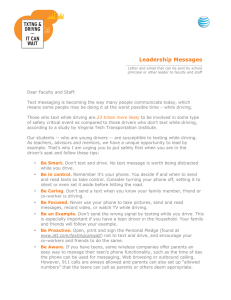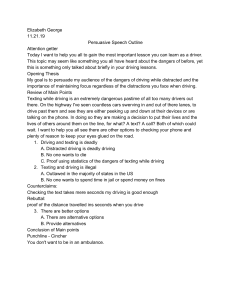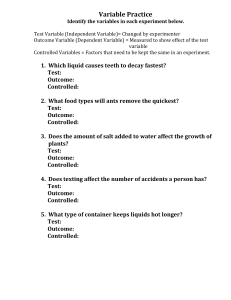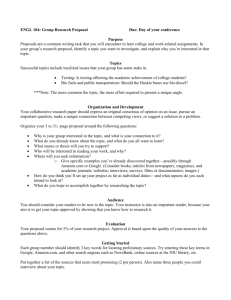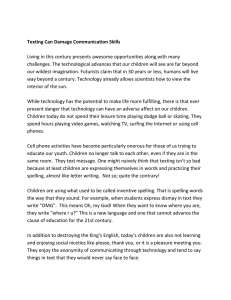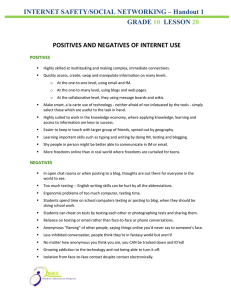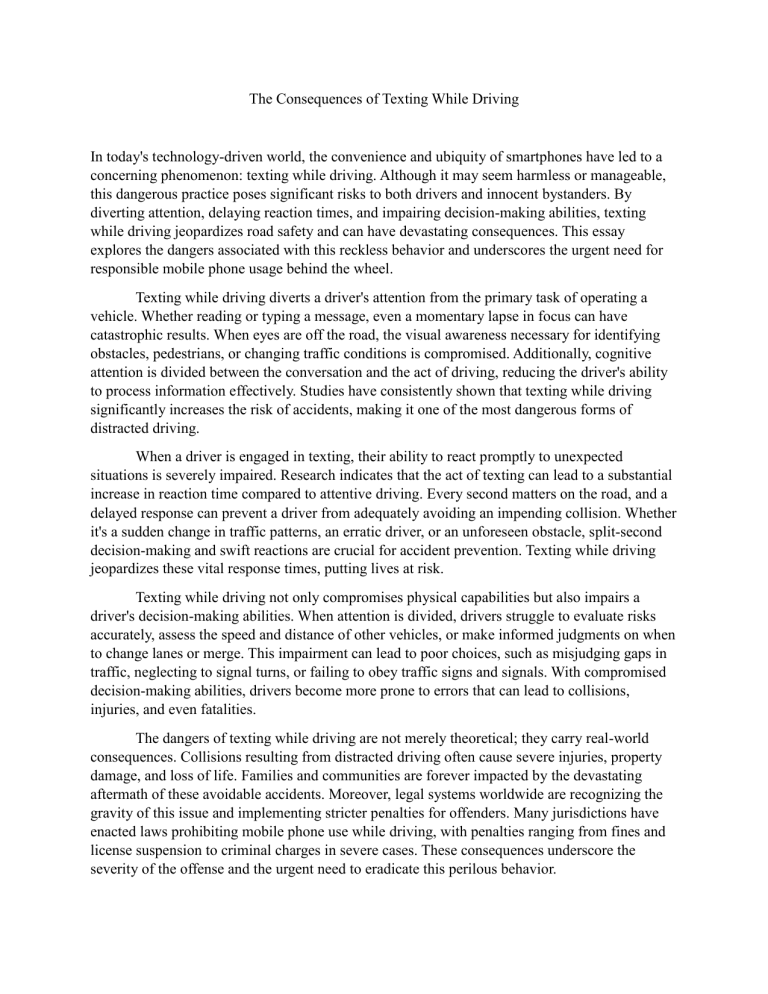
The Consequences of Texting While Driving In today's technology-driven world, the convenience and ubiquity of smartphones have led to a concerning phenomenon: texting while driving. Although it may seem harmless or manageable, this dangerous practice poses significant risks to both drivers and innocent bystanders. By diverting attention, delaying reaction times, and impairing decision-making abilities, texting while driving jeopardizes road safety and can have devastating consequences. This essay explores the dangers associated with this reckless behavior and underscores the urgent need for responsible mobile phone usage behind the wheel. Texting while driving diverts a driver's attention from the primary task of operating a vehicle. Whether reading or typing a message, even a momentary lapse in focus can have catastrophic results. When eyes are off the road, the visual awareness necessary for identifying obstacles, pedestrians, or changing traffic conditions is compromised. Additionally, cognitive attention is divided between the conversation and the act of driving, reducing the driver's ability to process information effectively. Studies have consistently shown that texting while driving significantly increases the risk of accidents, making it one of the most dangerous forms of distracted driving. When a driver is engaged in texting, their ability to react promptly to unexpected situations is severely impaired. Research indicates that the act of texting can lead to a substantial increase in reaction time compared to attentive driving. Every second matters on the road, and a delayed response can prevent a driver from adequately avoiding an impending collision. Whether it's a sudden change in traffic patterns, an erratic driver, or an unforeseen obstacle, split-second decision-making and swift reactions are crucial for accident prevention. Texting while driving jeopardizes these vital response times, putting lives at risk. Texting while driving not only compromises physical capabilities but also impairs a driver's decision-making abilities. When attention is divided, drivers struggle to evaluate risks accurately, assess the speed and distance of other vehicles, or make informed judgments on when to change lanes or merge. This impairment can lead to poor choices, such as misjudging gaps in traffic, neglecting to signal turns, or failing to obey traffic signs and signals. With compromised decision-making abilities, drivers become more prone to errors that can lead to collisions, injuries, and even fatalities. The dangers of texting while driving are not merely theoretical; they carry real-world consequences. Collisions resulting from distracted driving often cause severe injuries, property damage, and loss of life. Families and communities are forever impacted by the devastating aftermath of these avoidable accidents. Moreover, legal systems worldwide are recognizing the gravity of this issue and implementing stricter penalties for offenders. Many jurisdictions have enacted laws prohibiting mobile phone use while driving, with penalties ranging from fines and license suspension to criminal charges in severe cases. These consequences underscore the severity of the offense and the urgent need to eradicate this perilous behavior. Texting while driving is an alarmingly hazardous activity that endangers both drivers and innocent individuals on the road. By diverting attention, delaying reaction times, and impairing decision-making abilities, this practice poses serious risks that cannot be underestimated. To ensure road safety, it is vital for drivers to recognize the dangers associated with texting while driving and adopt responsible mobile phone usage. By prioritizing their attention, drivers can actively contribute to reducing accidents, protecting lives, and fostering a culture of safety on our roads.
